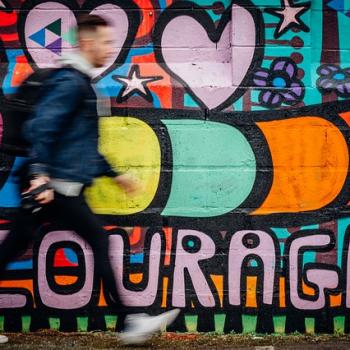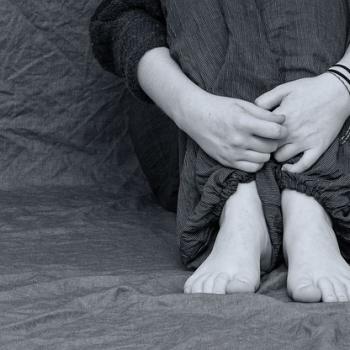By Zeba Khan
I was ten years old the first time I fasted. My family had just moved to Karachi, and we were living in the heart of the extended family compound, staying in my aunt’s house next door to my uncle’s house, which was downstairs from my uncle’s house, and also, to the left of my uncle’s house.
I had ten thousand cousins and since they were all fasting, I decided I was fasting too.
I made it through the first day tired but exhilarated, and was immediately rewarded with Fried Food and Pink Drink. I fasted the next day as well and then the next — and before I knew it, I had completed the entire month, and I was officially Someone Who Fasted. It was a point of great personal pride for me – whether or not acts of religious devotion are meant to be a source of pride in the first place – and I fasted without fail every year thereafter, except for the years where I failed to fast at all.
There have been lots of them actually — failed fasts and entire failed Ramadans. In the beginning they were related to pregnancy and breastfeeding, and they were a temporary loss with a foreseeable solution.
I would always try to fast next year InshaAllah. I would pay my fidya (just in case) and spread my make-up fasts throughout the year before next Ramadan came. I took it as a given that I would always be healthy enough to fast and that the effect of motherhood on my fasting was temporary.
I was wrong.
Medically Exempt but Mourning the Loss
I got sick. Turns out I was born that way, but it tends to get worse over time. I have a rare genetic glitch called Ehlers-Danlos Syndrome. Among other things, it makes fasting for an entire month impossible. Heck, I can’t fast an entire week without being utterly wiped out.
Hunger, dehydration and sleep deprivation trigger an avalanche of side-effects: migraines, fibromyalgia, disorientation, heart palpitations, chronic fatigue, upset stomach, orthostatic hypotension, muscle cramps, chest pain, shortness of breath … Ramadan for me carries the kind of side effects you expect from prime-time pill commercials, not a holy month.
You think I would have jumped for joy when doctors and scholars told me that I really ought to not fast. They told me I wouldn’t be expected to, and that if I didn’t, I wouldn’t be sinful. What they didn’t say though, is that I wouldn’t be sad.
They didn’t tell me that I would live for years in mourning. They didn’t tell me that the loss of fasting would leave a hole in my heart that bled anew on an annual basis. They probably didn’t know I would begin every Ramadan with private, painful tears and end it with more of the same.
It was no surprise this year then, just 29 days ago, that I welcomed Ramadan in the same way. The night before the first fast I spent angry, self-destructive hours on my phone surfing the internet, refreshing the same social media feeds repetitively, and resentfully ignoring “Ramadan Mubarak!” messages from hordes of cheerful and infuriating well-wishers.
It was a long night, and when the alarm clock went off for Fajr, I was still stewing in red-eyed resentment when my husband sat up and looked at me with the slow contemplation of a man waking up to a mystery.
“I couldn’t sleep,” I said evasively, trying to poke my phone under my pillowcase without being noticed.
He blinked.
“I was busy!” I snapped, challenging him to challenge me.
He raised half of a half-asleep eyebrow.
“I was busy being angry!” I turned onto my side. And then, I burst into tears.
I have to wonder why I’m choosing to share this pain. After all, it’s less than a month old and “Resentful Ramadan Sobbing” is hardly a tradition. There are lots of things you expect to read about in Ramadan every year, but me testing how absorbent the front of my husband’s pajamas are probably isn’t one.
I know what you’re thinking, you’re thinking Hey Zeba there’s this article on Muslim Matters that this sister wrote about not being able to fast.
Thank you, I read it.
I even wrote it. It talked about a change in perception for people temporarily missing out in Ramadan, about how rather than feeling depressed, they should take the opportunity as a challenge and do their best to participate in ways other than fasting.
It was good advice if I may say so myself, but it was missing something. It was missing the point. I think I’ve managed to find it, but first you have to get through the next few paragraphs.
The Suspenseful Part
Two weeks ago I was fasting. It started off routinely — my husband lovingly hauled me out of bed so I could fall asleep at the kitchen table. He put food and Gatorade and pills in front of me, which I ate and drank and took with my eyes closed. He stood me up to do wudu, and I wobbled like a drunk, stumbling into a few walls for emphasis.
By the time I made it to prayer I was almost at the point of tears. I prayed Fajr as quickly and upright as I could manage and mumbled some duas on my way back to bed. I woke up at noon – through maternal necessity versus choice – to disentangle myself from the shawl I slept in and find cereal and spoons for the tiny people who call me “Momma do you need coffee” when I wake up in the morning.
By 4 p.m. I was still in the same stupor I had woken up in. My head was a hollow metal drum and my children’s voices were sledge-hammers. The stairs were mountains high and my legs thigh-deep in the invisible waters of fatigue. Disoriented and in pain, I was too sick to pray attentively and too mentally absent to read the Quran.
The Irony Sucked
I had been so excited to fast and here I was so incapacitated by fasting. My only way to survive until iftaar was to install myself in a recliner not move until the adhan (call to prayer) was called. YouTube was in order.
In an attempt to pass the time without resorting to garbage while fasting, I began flipping through Islamic lectures on a variety of topics. Nothing stuck, nothing resonated with my half-functioning brain. I continued watching out of sheer stubbornness, which Alhamdulillah, paid off in the end with this:
Whoever fasts during Ramadan with faith and seeking his reward from Allah will have his past sins forgiven.
Whoever prays during the nights in Ramadan with faith and seeking his reward from Allah will have his past sins forgiven.
And he who passes Lailat al-Qadr in prayer with faith and seeking his reward from Allah will have his past sins forgiven.
You might have read this hadith before. I have too, but turns out it makes more sense when you can’t fast. See, the first thing the Prophet (saw) mentions is fasting, but it’s not the only thing he mentioned.
He also mentioned prayer, worship, Lailatul-Qadr, and the entire point that I had been missing for more than 20 years. See, between the samosas and the rooh afza* and the carte blanche to stay up all night with ten thousand other cousins who stayed up all night too, I loved Ramadan for all the wrong reasons.
It turns out that Ramadan isn’t about food. In fact, it’s not even about fasting. Ramadan is actually about forgiveness.
Really, look at it again. Whoever fasts is forgiven, whoever prays in forgiven, whoever worships on Lailatul Qadr is forgiven. It’s all about the forgiveness.
If you don’t believe me, perhaps you’d like it from a higher authority? On Abu Hurayra’s, the Prophet (SAW) himself said:
“Many people who fast get nothing from their fast except hunger and thirst, and many people who pray at night get nothing from it except wakefulness.”
That means it is completely possible to win at fasting and make your Ramadan an utter loss. Yes, the day hunger and the night prayer are two very awesome ways of attaining forgiveness, but fasting is the means to the end. Not the end itself.
Because it’s not about fasting, it’s about forgiveness.
The Real Point of Ramadan
As recently as 29 days ago, I believed that Ramadan = Fasting. That is why, when I was no longer able to fast successfully, I wondered what the point of Ramadan even was.
That is why, three years before that, when I wrote “What I Learned about Ramadan by Not Fasting,” the gist of what I said was: Sorry you’re missing out on the main part of Ramadan. Here’s your consolation prize.
This is what I should have said instead.
Dear person who can’t, and foreseeably won’t, be able to fast. It’s ok to be sad. I’m sad too. I know you read this article once on Muslim Matters where this sister said that instead of feeling sad, you should feel honored. But you know what? Let’s call that Plan B. Because it’s not about fasting, it’s about forgiveness.
Before you can move past sadness you need to understand where it’s coming from in the first place. Not being well enough to fast is just one of the many ways that my body is failing to live up to my heart’s expectations. Not fasting reminds me of not being able to do sujood, and how my forehead still yearns for the humble proximity of the floor in my prayers.
Not fasting reminds me of not being able to stand very long in prayers, and how I am unable to attend tarawih or qiyaam in a masjid because it’s not possible for me to be on my feet that long. Yes, I could sit for the whole time, but the hard-backed chairs in the masjid lend themselves to sprained muscles and terrible back pain due to hypermobility in my spine.
We see our health as sure thing. We undervalue it because we assume it’ll always be there and there’s no urgency to use it before we lose it. I took fasting for granted too. Since it was always there, and it was always easy, I never put the effort in to make it a religious experience. But it’s not about fasting, it’s about forgiveness.
This is where I find a different kind of sadness.
In all the years I spent fasting, from age 10-30, I cannot remember a single Ramadan where I had a sense of purpose other than making it to sunset. Ramadan was a list where I ticked off the days for a sense of pride and perfunctory practice, to say that I had done it and to not be accountable in case I didn’t.
I feel as though 20 years I fasted and missed out on the main point, and Allah had to take fasting away from me in order for me to finally see it. I understand now, and only now, that Ramadan is about your soul’s longing and not your stomach’s.
Because it’s not about fasting, it’s about forgiveness.
I understand that for someone with chronic illness, a day of eating and rest is the foundation that a night of praying is built on. Because it’s not about fasting, it’s about forgiveness.
I have learned that honest, private tears in close conversation with Allah hold more of my actual soul than the hours of brain-dead hunger that I had been beating myself up over. Because it’s not about fasting, it’s about forgiveness.
Fasting is the means to the end, but it isn’t the end itself. Because it’s not about fasting, it’s about forgiveness.
I’m still sad, but it’s a different kind of sadness. I’m sad I spent so many years in hunger without feeding my spirit. I went though the motions unchallenged, unthinking, and uninterested in seeking the greater purpose. I’m sad I spent so much time in resentment towards Allah when He was lovingly guiding me to a critical lesson I may otherwise never have learned.
I am not happy that I am chronically ill, but I am grateful beyond words that Allah removed the distraction of a health so I could focus on spiritual healing. Because it’s not about fasting, it’s about forgiveness.
I will still cry when Ramadan comes again, but they will be tears of relief should I live to see another Ramadan.
I will cry when Ramadan is over too, but they will be the tears of a loved one departing versus the tantrums of a spoiled child.
Because it’s not about fasting, it’s about forgiveness.
*It’s the Pink Drink
Zeba Khan is a bi-racial writer, parent, and autism awareness advocate. She is the mother of three children, a special little boy with autism and two special little girls without. Zeba writes about special needs parenting and autism awareness in addition to Islam and personal spirituality. By day, she is a mother and the managing director of an early-intervention ABA service. By night, she is a writer of poetry and fiction related to Islam and Muslims.












